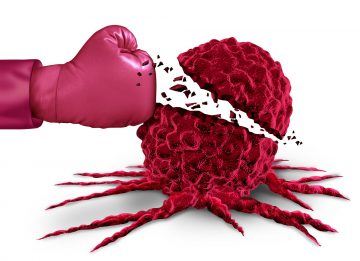Ian Neff in Jacobin:
 The cost of cancer treatment in the United States continues to skyrocket. It’s gotten so bad that GoFundMe has special tips to help people with cancer beg for their lives from strangers on the internet. You can scroll through all the cancer-related fundraisers and see endless stories of people who need tens or even hundreds of thousands of dollars for treatment. The comments are filled with people in similar situations, heartbreakingly earnest prayers, and some who are envious that their own campaigns didn’t go so well. In a recent paper, I argued that the for-profit pharmaceutical industry will always stand as a threat to justice in cancer care. The solution to that threat is not timid regulation, but to replace that industry entirely. The social burden of cancer makes it a particularly ripe field for supplanting for-profit drug development with a socialized model, and the existing industry and research structure can be transformed to serve the public rather than profits.
The cost of cancer treatment in the United States continues to skyrocket. It’s gotten so bad that GoFundMe has special tips to help people with cancer beg for their lives from strangers on the internet. You can scroll through all the cancer-related fundraisers and see endless stories of people who need tens or even hundreds of thousands of dollars for treatment. The comments are filled with people in similar situations, heartbreakingly earnest prayers, and some who are envious that their own campaigns didn’t go so well. In a recent paper, I argued that the for-profit pharmaceutical industry will always stand as a threat to justice in cancer care. The solution to that threat is not timid regulation, but to replace that industry entirely. The social burden of cancer makes it a particularly ripe field for supplanting for-profit drug development with a socialized model, and the existing industry and research structure can be transformed to serve the public rather than profits.
Why start with cancer research? Cancer is, in the language of anthropology, a “total social fact.” It permeates society, simultaneously uniting and dividing everything with its tendrils, creating borders between Susan Sontag’s “kingdom of the sick” and the dominion of the well. It threatens life, it strains relationships, and it makes insufferable demands of patients and their families alike. As S. Lochlann Jain explains, cancer is “at one moment a paper trail and at another an identity . . . a statistic . . . a bankruptcy . . . a scientific quandary.” Cancer is a cultural weight, physical threat, and potential economic ruin in one package you can carry without so much as a tote bag.
These costs have real health consequences for people with cancer. A quarter of people who have trouble paying for their treatment cut their pills in half or otherwise ration medicine to get by. A recent study shows that almost half of patients who have to pay more than $2,000 out of pocket for pills to treat cancer have to abandon that treatment altogether. This shouldn’t surprise anyone since 40 percent of Americans can’t scrape together $400 in a pinch. At the same time, intravenous drug prices have risen 18 percent faster than inflation. There’s no escape from the crushing burden of drug costs.
More here.
